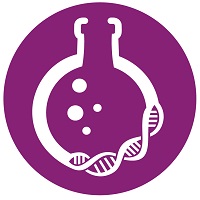Bioanalytics
Symposium: Oligo Bioanalysis, Platforms and Methods
Minimizing Immunogenicity Testing for Development of Oligonucleotide Therapeutics: Risk-Based Strategy
Wednesday, November 12, 2025
10:30 AM - 11:00 AM CT
Location: 221 AB

An Zhao, PhD (she/her/hers)
Fellow Scientist
Regeneron Pharmaceuticals
Tarrytown, New York
Speaker(s)
Oligonucleotide therapeutics (OTs) have emerged as a prominent new treatment modality with products approved in US for treating various diseases. OTs are most commonly single or double stranded RNAs that are designed to hybridize with specific RNA transcripts and modify protein expression. Historically, immunogenicity assessment for OTs has followed the approach used for protein therapeutics. However, the unique characteristics and mechanism of action of OTs necessitate tailored drug development strategies, particularly for immunogenicity assessment. This presentation will outline an immunogenicity risk assessment framework for OTs, discuss the challenges in anti-drug antibody (ADA) assay development, and review existing immunogenicity data from approved OTs. Given the generally low immunogenic potential of OTs, with low ADA incidence and no clinical impact observed in approved therapeutics, routine ADA assessment may not be needed, especially in early clinical trials. Instead, we propose a risk-based strategy for immunogenicity assessment where samples will be collected but analysis would only be performed in the event of safety or efficacy observations that may be attributed to immunogenicity. Our objective is to streamline the development process for OTs, better align with their unique properties and potentially facilitate more effective and efficient clinical development.
Learning Objectives:
- Upon completion, participants will be able to understand the unique immunogenicity risk associated with oligonucleotides therapeutics and the rationale for a tailored risk-based immunogenicity assessment approach
- Upon completion, participants will be able to discuss the challenges in ADA assay development specific for oligonucleotide therapeutics
- Upon completion, participants will be able to define and apply a risk-based immunogenicity strategy for OTs, given their unique characteristics and low immunogenicity data from approved products.

